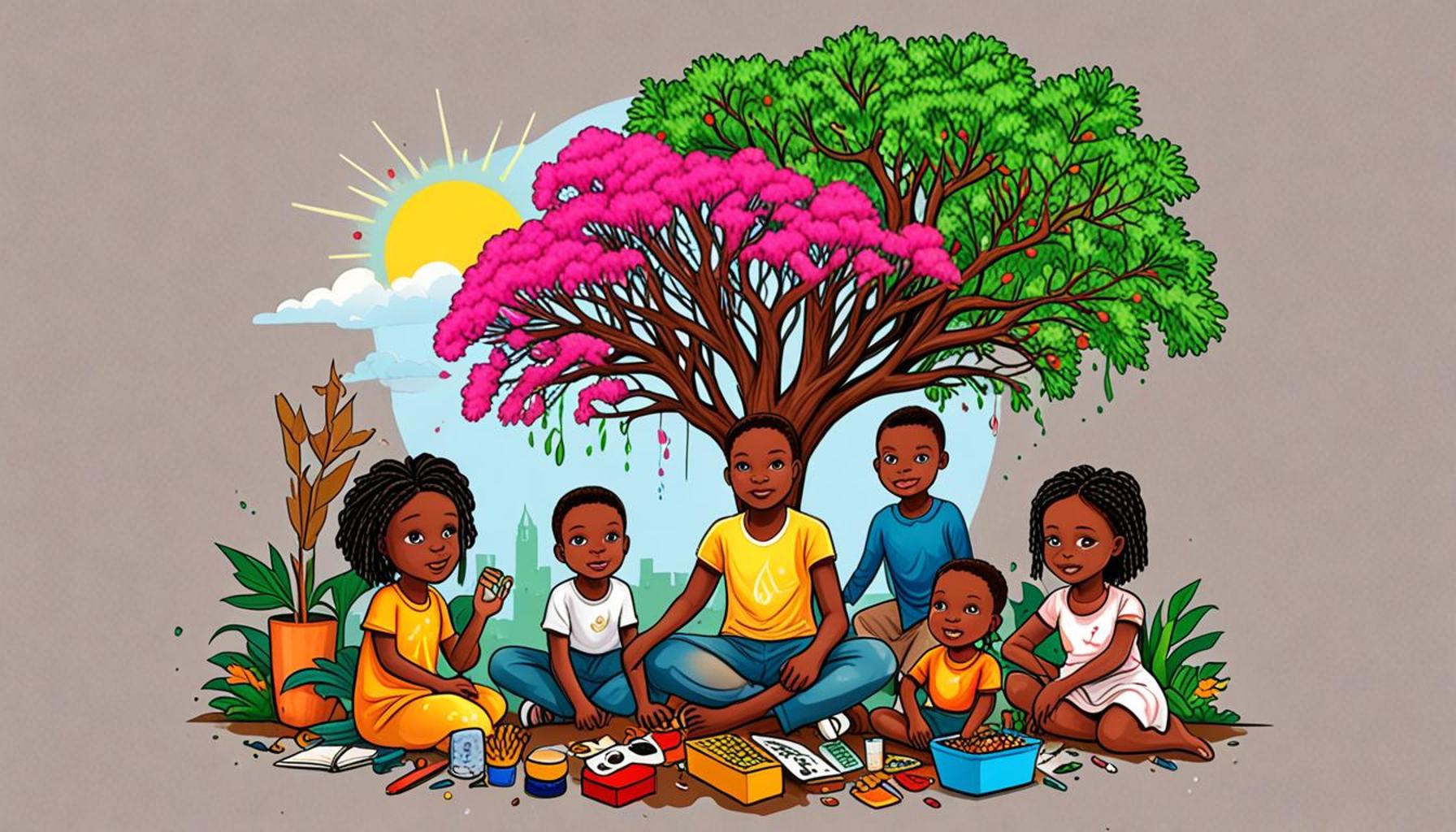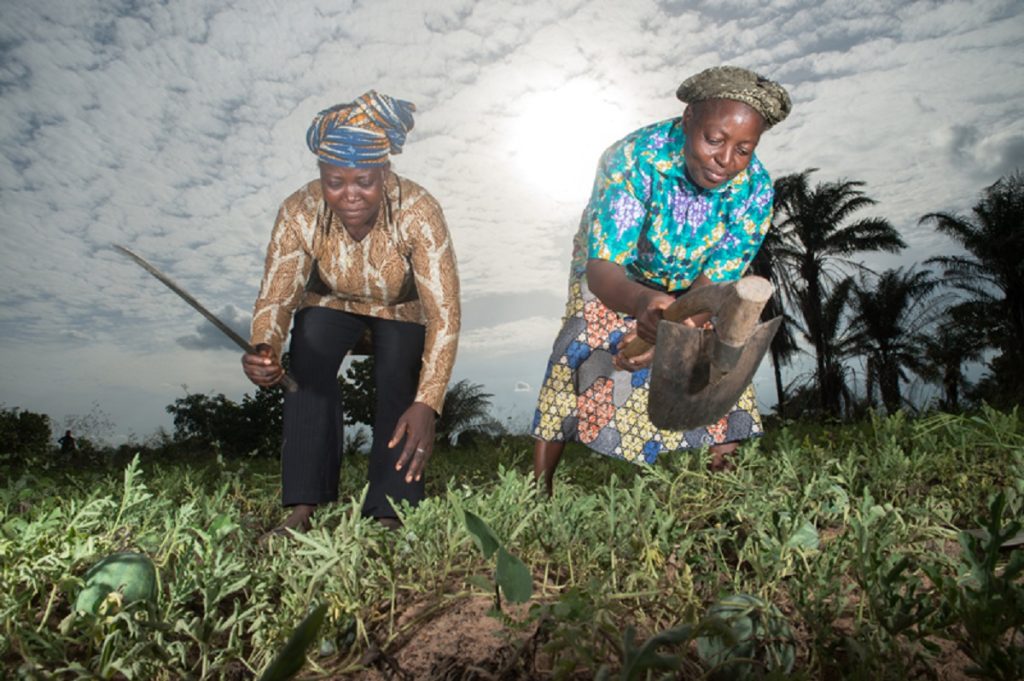Resilience in Times of Crisis: Growth Mindset Techniques for Nigerian Families

Understanding Resilience in Nigerian Families
In a country like Nigeria, where daily life is often characterized by both vibrant culture and significant challenges, the concept of resilience takes on a profound meaning. Economic fluctuations, social unrest, and health crises such as the COVID-19 pandemic exacerbate the struggles families face. Yet, these challenges can also serve as catalysts for growth, if approached with the right mindset. The cultivation of a growth mindset can empower families to turn adversities into opportunities for personal and collective development.
Adopting a growth mindset encourages families to view challenges as opportunities for learning and improvement. This shift in perspective is crucial for navigating both everyday trials and severe crises. Various techniques can help families develop this mindset effectively, particularly in the context of Nigeria. For instance:
- Positive Affirmation: Engaging in daily affirmations encourages family members to reinforce their self-worth and capabilities. Simple affirmations, like “I am resilient,” or “We can overcome any problem together,” can significantly boost confidence and foster a sense of unity.
- Goal Setting: Setting attainable goals fosters a sense of purpose and direction. Nigerian families can initiate community activities, such as cooperative savings schemes or educational support groups, to encourage collective goal-setting that instills hope and drives progress.
- Open Communication: Creating an environment where family members feel safe to share their thoughts and emotions is vital. This could involve regular family meetings that allow everyone to voice their concerns and aspirations. Such practices encourage emotional healing and strengthen family bonds.
- Problem-Solving Skills: Rather than succumbing to despair, families can benefit from structured approaches to problem-solving. Techniques like brainstorming solutions as a family or discussing past challenges they’ve overcome can empower members to tackle new hurdles more effectively.
In Nigeria, where family is often seen as the bedrock of emotional and social support, the implementation of these techniques can yield remarkable benefits. Families equipped with a growth mindset can emerge not only intact but also invigorated from crises, paving the way for greater cohesion and collective strength. For instance, in the face of economic downturns, families that adopt these strategies are better positioned to adapt, whether through diversifying their income streams or collaborating with their communities.
Ultimately, embracing a growth mindset is crucial for Nigerian families to foster resilience. By employing these techniques, they can navigate not only the challenges of today but also build a stronger foundation for future generations. As society continues to evolve, ensuring that families are equipped with the skills to thrive will be essential for both personal and national development.
SEE ALSO: Click here to read another article

Cultivating a Growth Mindset: Techniques for Resilience
Adopting a growth mindset is not merely about having an optimistic outlook; it involves active practices that can significantly transform the way Nigerian families respond to crises. By consciously incorporating resilience-building techniques into daily life, families can ensure they are better equipped to face challenges head-on. This process entails a multifaceted approach that nurtures both individual and communal strength, resulting in a supportive network that thrives amidst adversity.
One effective strategy is the practice of positive affirmation. This technique can be particularly powerful in Nigerian households, where cultural narratives frequently shape individual and collective identities. Families can start their day with simple affirmations that resonate with their shared experiences and cultural values. Phrases such as “Together we are strong,” or “Our challenges make us wiser,” can set a positive tone for the day and promote unity among family members. This simple yet profound ritual encourages not only self-empowerment but also reinforces familial bonds that are essential in times of crisis.
Furthermore, goal setting serves as a cornerstone for resilience. By defining specific, achievable objectives, families can generate a sense of purpose that propels them forward. For instance, Nigerian families can embrace community initiatives, such as engaging in cooperative farming or establishing local trading groups. These collaborative efforts not only foster individual growth but also enhance social cohesion, making families more adaptable in facing economic fluctuations. Setting short-term goals, such as saving a certain amount weekly for future family investments, can be tremendously motivating and instill a strong sense of hope.
Fostering Open Communication
Equally important is the role of open communication in building resilience. Nigerian families can benefit from establishing regular family discussions that prioritize emotional safety and mutual respect. Encouraging children and adults alike to express their thoughts, fears, and aspirations creates a healthy environment for emotional healing. Many families can initiate monthly family meetings, allowing each member a platform to share their experiences, which not only validates emotions but also reinforces trust and support within the family unit.
Developing Problem-Solving Skills
Lastly, honing problem-solving skills is essential for resilience during uncertain times. Instead of succumbing to the overwhelming nature of crises, families can proactively brainstorm solutions as a unit. Engaging in structured discussions about past difficulties—whether it’s handling a financial setback or navigating educational challenges—can illuminate pathways to overcoming current obstacles. By reviewing these shared experiences, families cultivate confidence and a collective understanding that challenges can be tackled together.
These techniques, when effectively woven into the fabric of daily family life, can significantly enhance resilience. Consequently, Nigerian families will not only survive the pressing crises of today but will also flourish, equipped with a robust foundation for future uncertainties. The journey toward resilience may not be easy, but the commitment to fostering a growth mindset will invariably guide families through, leaving them more connected and capable than before.
Resilience in Times of Crisis: Growth Mindset Techniques for Nigerian Families
As Nigerian families navigate the complexities of today’s challenges, embracing a growth mindset can be transformative. The notion that abilities and intelligence can be developed encourages individuals to view setbacks as opportunities for learning. This approach is particularly vital during crises, where resilience can be the key to thriving despite adversity.
One effective technique is fostering positive self-talk. This entails replacing negative thoughts with encouraging affirmations, which can significantly impact a family’s overall outlook during difficult times. By consistently practicing this technique, families can cultivate an environment that nurtures optimism and motivation even in the face of challenges.
Additionally, implementing goal-setting strategies allows families to create clear, achievable objectives. This focused approach not only facilitates progress but also boosts morale. Families should encourage open discussions about their goals, ensuring everyone understands their role in achieving them. This shared vision fosters unity and commitment, sustaining resilience in trying circumstances.
Furthermore, it’s important to celebrate small victories. Recognizing progress, no matter how minor, reinforces a sense of accomplishment and maintains momentum. This practice nurtures a culture of gratitude and positivity within families, which is essential during tough times.
Engaging in community support systems is another critical aspect. By building networks and seeking support from local resources, families can learn from others’ experiences and solutions. This connection reinforces the idea that they’re not alone in their struggles, encouraging mutual assistance which strengthens resilience collectively.
Ultimately, these growth mindset techniques allow Nigerian families to navigate crises more effectively, transforming challenges into avenues for growth and strengthening their resilience. To delve deeper into these methods and discover practical applications tailored to Nigerian contexts, exploring expert insights and community workshops can be incredibly beneficial.
| Category | Details |
|---|---|
| Positive Self-Talk | Encourages optimistic thinking to tackle challenges. |
| Goal-Setting | Helps families create clear objectives for progress. |
| Celebrating Victories | Recognizing small achievements to boost morale. |
| Community Support | Building networks for shared experiences and assistance. |
SEE ALSO: Click here to read another article
Embracing Flexibility: The Key to Adaptive Resilience
In times of crisis, flexibility becomes an invaluable asset for Nigerian families striving for resilience. The ability to adapt not only means accepting change but also cultivating an openness to new ideas and methods of problem-solving. This adaptability can be fostered through practices such as experiential learning, where families can engage in new activities that challenge them to step outside their comfort zones. By experiencing alternative solutions and embracing different perspectives, families enhance their resourcefulness. For example, a family may decide to explore agricultural innovations like hydroponics or aeroponics, diversifying their farming methods while reinforcing teamwork and resilience against potential food scarcity.
Additionally, participating in community resilience initiatives can greatly benefit families. Many communities in Nigeria encourage collaborative practices during challenging times, offering workshops and seminars that equip families with practical skills such as financial literacy, mental health awareness, and crisis management. Such initiatives serve as platforms for knowledge exchange, where families learn from one another and build a reservoir of community support. This interaction not only strengthens individual families but cultivates a collective resilience that becomes paramount in times of need.
Encouraging Emotional Intelligence
Another crucial aspect of resilience in crisis situations is the development of emotional intelligence within families. This can be achieved by teaching family members, especially children, to recognize and understand their emotions. For instance, families can introduce storytelling as a form of emotional engagement, where members share personal stories surrounding crises they have faced. These narratives enable children to identify emotions like fear or disappointment and understand that such feelings are valid and shared among loved ones. This practice not only builds emotional awareness but also fosters empathy and strengthens family connections during difficult times.
Nigerian families can also leverage digital resources to enhance their emotional intelligence. Numerous online platforms offer workshops focusing on psychological resilience and mental health, providing both theoretical knowledge and practical coping strategies. Engaging with these resources can equip families with tools to manage stressors more effectively, allowing them to navigate crises with greater fortitude.
Building Financial Resilience
Financial management is often a significant concern in times of crisis, making it imperative for families to develop a financial resilience strategy. This can involve creating a family budget, establishing an emergency fund, and practicing prudent spending habits. Families can engage in regular discussions about their financial goals, encouraging each member to contribute to budgeting decisions. By involving every family member in financial planning, parents nurture a sense of responsibility and awareness of the economic realities that impact them.
Furthermore, Nigerian families can explore cooperative savings schemes known as “esusu” or “ajo,” which bolster financial resilience and community bonding. Through these participatory savings programs, families can collaboratively contribute to a community fund, providing a financial safety net that can be accessed during crises. This community-oriented approach not only strengthens familial ties but also enhances overall community resilience, allowing families to weather storms together.
By integrating these techniques into their daily lives, Nigerian families can enhance their adaptability, emotional understanding, and financial stability, ultimately cultivating a holistic sense of resilience that prepares them for future challenges.
LEARN MORE: This related article may interest you
Conclusion: Cultivating a Resilient Future
The journey towards resilience for Nigerian families in times of crisis is not merely an act of survival; it is an empowering process of growth and transformation. By embracing flexibility and adapting to the ever-changing landscape of challenges, families can find innovative solutions that not only address current difficulties but also position them for future success. This adaptability, when augmented with the communal spirit inherent in Nigeria’s cultural fabric, fosters a sense of belonging and shared responsibility, critical components of a resilient community.
Moreover, the development of emotional intelligence serves as a cornerstone for nurturing stronger family bonds. Understanding and validating emotions provides families with a framework to manage stress and support each other effectively, ultimately leading to enhanced psychological well-being. When children learn to navigate their emotions, they become equipped to handle the trials of life with greater ease, forming the next generation of resilient individuals.
Additionally, building a robust financial resilience strategy empowers families to weather economic storms while instilling values of responsibility and foresight. By cultivating practical financial habits and participating in community-oriented savings schemes, families can ensure a safety net during unforeseen circumstances, reinforcing the idea that collaboration strengthens the whole community.
In summary, the techniques explored in this article are not just tools; they are vital steps towards a resilient future for Nigerian families. As they continue to navigate crises, these strategies will undoubtedly arm households with the capabilities to thrive. Adopting a growth mindset in the face of adversity is not just essential—it’s a profound opportunity for families to emerge, not only unscathed but strengthened and united.


